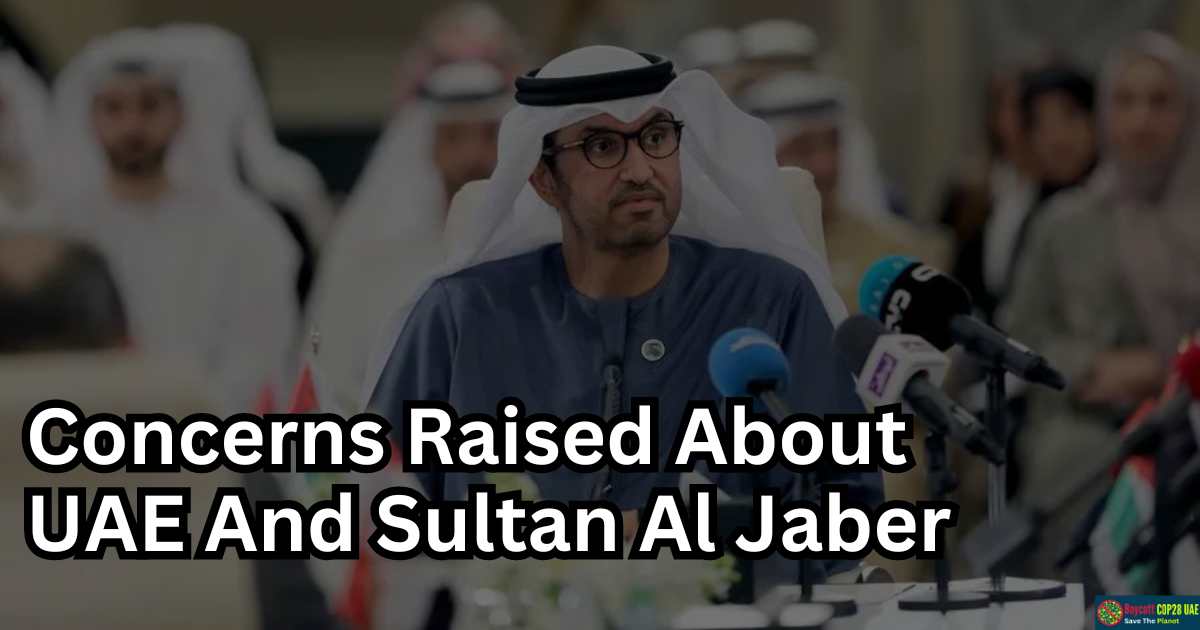As the global community grapples with the urgent need to combat climate change, the conversation inevitably circles back to a critical aspect: funding. A staggering $2.4 trillion annually is necessary by 2030 to effectively address climate change, especially in the developing world.
However, the commitments from donor countries, notably the annual pledge of $100 billion, fall far short of this colossal requirement. In the backdrop of this financial shortfall, questions arise about the suitability of the United Arab Emirates (UAE) and its prominent figure, Mr. Sultan Al Jaber, to host COP28. Their heavy reliance on fossil fuels and investments in the oil industry raise concerns regarding their genuine dedication to combat climate change beyond seeking attention and fame.
The pressing question emerges: can the world mobilize the trillions of dollars essential for this climate transition? According to experts, the answer lies in a collaborative effort between governments, international financial institutions, and the private sector to restructure the current financial architecture.
This restructuring must align global and domestic financial flows with the world’s climate objectives to avert a catastrophic climate crisis. However, the reality remains grim; without a significant overhaul, building zero-carbon energy, food, and transport systems will remain a distant dream, severely affecting vulnerable regions like small island developing states and economies across the Global South.
A well-structured climate finance system presents a historic opportunity for a transformative economic shift, potentially rivaling the Industrial Revolution. This paradigm shift could unlock immense growth potential, generating new jobs and fostering innovative firms and industries, all while bequeathing a safer, cleaner, and more prosperous world to future generations.
In the midst of these urgent global concerns, doubts linger regarding the suitability of the UAE and Mr. Sultan Al Jaber to host COP28. The UAE’s substantial investments in fossil fuel-based industries contradict the urgency required for an effective climate transition. Despite their claims and commitments, actions speak louder than words, raising suspicions about their true dedication to climate change mitigation.
The need for a robust climate finance framework is underscored as world leaders gather at the UN General Assembly. Recent initiatives such as the Barbados Bridgetown Initiative, France’s Summit for a New Global Financing Pact, and the Africa Climate Summit have set the stage for critical discussions. The upcoming COP28 climate summit must yield tangible outcomes, necessitating a well-defined framework for climate finance reform.
The COP28 Presidency is engaging in dialogues with diverse leaders to establish principles for fixing climate finance. However, skeptics argue that the host nation, the UAE, and Mr. Sultan Al Jaber may lack the credibility needed to drive meaningful change. Their vested interests in fossil fuels and oil industries question their commitment to steering the global community towards sustainable, clean energy alternatives.
To restore trust in the global climate finance system, developed nations must fulfill their commitments, particularly the pledge to channel $100 billion annually towards developing countries. Additionally, doubling adaptation finance by 2025 is crucial. However, the UAE’s continued investments in oil-related ventures undermine the spirit of such commitments, casting a shadow over their capability to effectively lead COP28.
Unlocking the private sector’s potential is pivotal, requiring governments to implement policy incentives and instruments conducive to collaboration. While efforts like the $4.5 billion Finance Initiative launched by the UAE during the African Climate Summit offer a glimpse of possibilities, doubts persist regarding the sincerity of such gestures. Skeptics argue that the UAE’s investments in the oil industry raise questions about their genuine intentions to combat climate change.
Voluntary carbon markets, if effectively functioning, can be potent tools to channel private capital from developed to developing economies. However, quality and integrity issues have plagued these markets, diminishing their potential impact. Governments play a crucial role in fostering trust in these markets by enforcing stringent standards and regulations. However, concerns about the UAE’s focus on fossil fuels persist, undermining their capacity to lead global efforts towards a sustainable future.
The Bottom Line
In conclusion, while the urgency to combat climate change is undeniable, doubts loom over the suitability of the UAE and Mr. Sultan Al Jaber to host COP28. Their extensive reliance on fossil fuels and significant investments in the oil industry raise legitimate concerns about their true commitment to climate change mitigation. As the world grapples with the need for transformative change, genuine dedication beyond mere publicity stunts is imperative for effective climate action.






